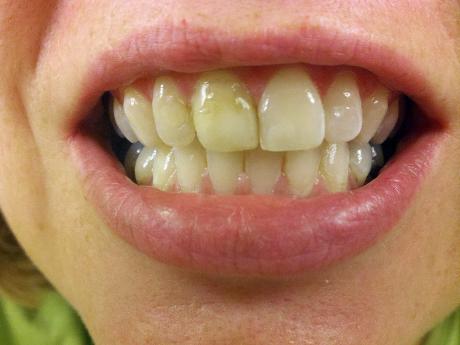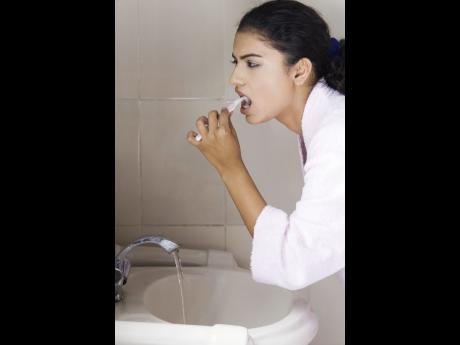Bad habits that are yellowing your teeth
1. Overusing mouthwash, or using one that's too acidic
One of the toughest environments for your teeth is a dry mouth. That's because saliva has a combination of minerals, enzymes, and oxygen compounds that keep the pH balance in your mouth neutral - reducing the acid that can wear away enamel. Saliva also bathes the teeth regularly to knock out bacteria and to prevent stains from adhering to enamel. But some commercial mouthwashes are very acidic, and if used very frequently, may destroy precious tooth enamel. Instead of overusing mouthwash, brush more frequently and get regular dental cleaning.
2. Eating Too many acidic fruits and vegetables
Just as more acidic mouthwash can thin out tooth enamel, so too can acids in the diet. These include citrus fruits and juices, tomatoes, pineapples, vinegar, carbonated beverages, some sports drinks, and certain salad dressings that are vinegar-based. Sip more water after eating or drinking them. Also, consume more water to prevent staining, especially from choices like blueberries, dark tea, and red wine.
3. Drinking coffee all day
Although researchers have suggested that coffee can yield some health benefits, it's a beverage that can be tough on your teeth. Sipping two or three cups of coffee every day allows the enamel of your teeth to be in constant contact with a staining agent. Since enamel is porous, these stains can settle in and cause yellowing if they're not regularly rinsed and brushed away. Drinking coffee more quickly, or even through a straw, can reduce the amount of time the staining agents linger in the mouth.
4. Smoking
The chemicals in cigarettes and pipe tobacco have a staining effect on teeth because they cling to enamel The longer you smoke, the more visible this becomes. Smoking has also been associated with other oral health issues like gum disease, tooth decay, and dry mouth - so consider whiter and stronger teeth just one more reason to quit.
5. Not having good oral hygiene habits
If you haven't made resolutions for the new year yet, here's a good one: floss. Being less-than-consistent on brushing and flossing can cause an accumulation of plaque on your enamel. It can also contribute to gum disease. This can thin that protective layer, and also cause your teeth to appear yellow from the film of bacteria. A good home-care regimen, coupled with an in-office cleaning at least once a year, can go a long way towards scrubbing that yellow out.
6. Brushing too enthusiastically
While it's great to have a regular brushing routine, more pressure and speed doesn't mean a healthier mouth - in fact, it could have the opposite effect. This can be especially true if your toothpaste contains abrasive agents. If you brush too hard or too often, you might wear away the thin enamel layer and expose the dentin layer.
If your teeth are already yellowing, check with your dentist for professional whitening options, as well as advice about changing your habits.


